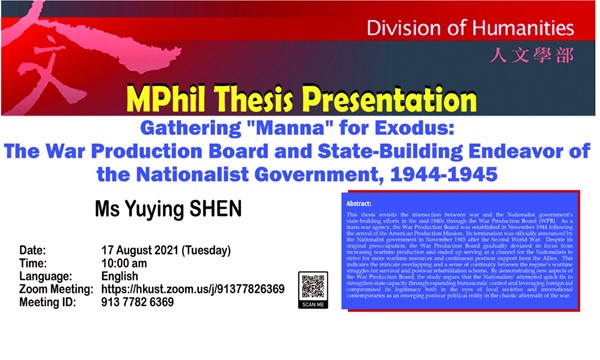Abstract:
This thesis revisits the intersection between war and the Nationalist government’s state-building efforts in the mid-1940s through the War Production Board (WPB). As a trans-war agency, the War Production Board was established in November 1944 following the arrival of the American Production Mission. Its termination was officially announced by the Nationalist government in November 1945 after the Second World War. Despite its original preoccupation, the War Production Board gradually deviated its focus from increasing wartime production and ended up serving as a channel for the Nationalists to strive for more wartime resources and continuous postwar support from the Allies. This indicates the intricate overlapping and a sense of continuity between the regime’s wartime struggles for survival and postwar rehabilitation scheme. By demonstrating new aspects of the War Production Board, the study argues that the Nationalists’ attempted quick-fix to strengthen state capacity through expanding bureaucratic control and leveraging foreign aid compromised its legitimacy both in the eyes of local societies and international contemporaries as an emerging postwar political entity in the chaotic aftermath of the war.
https://engage.ust.hk/event/7191725
huma@ust.hk
